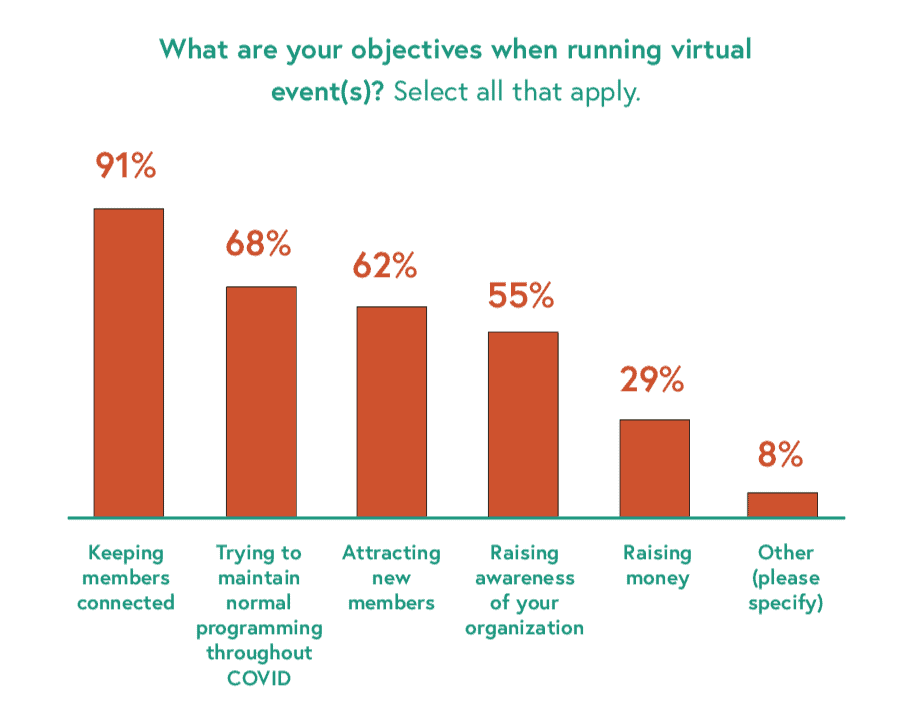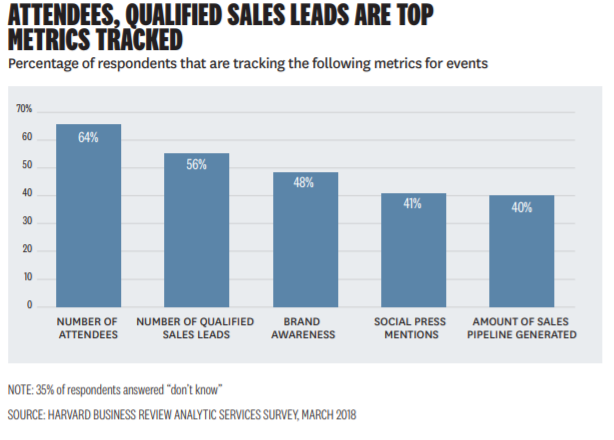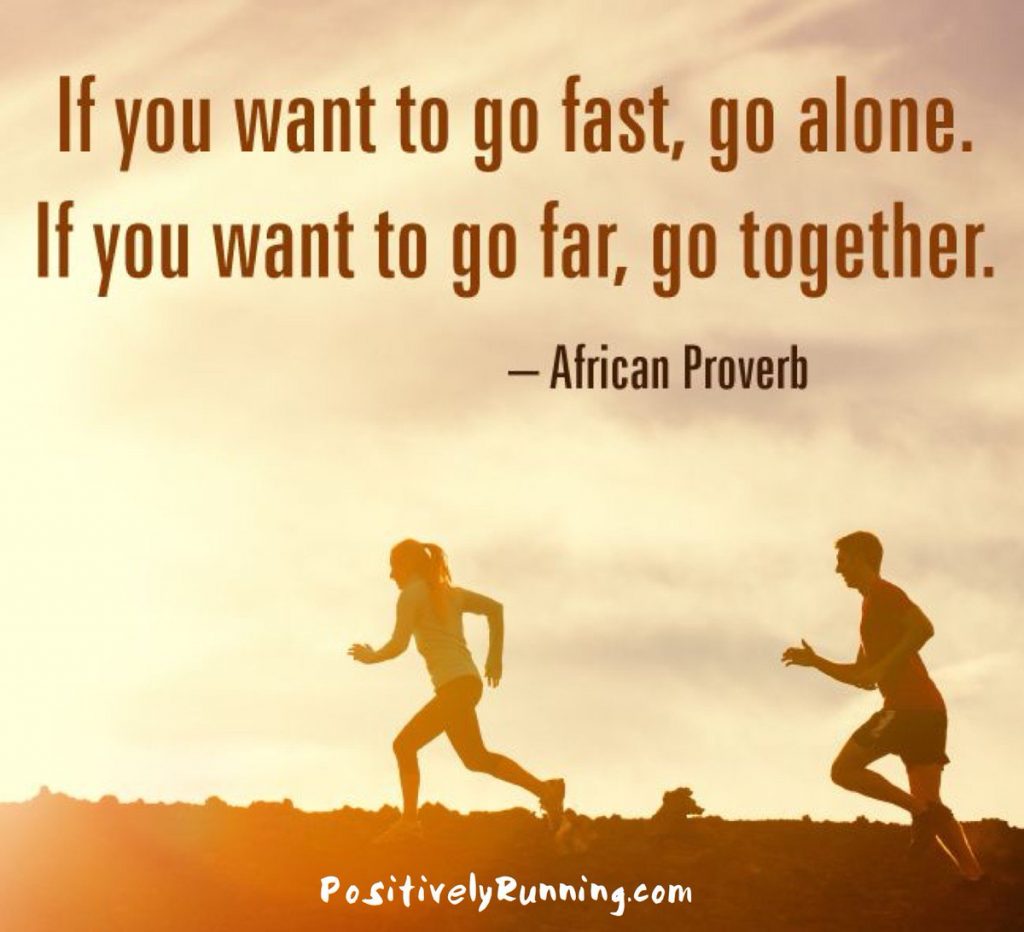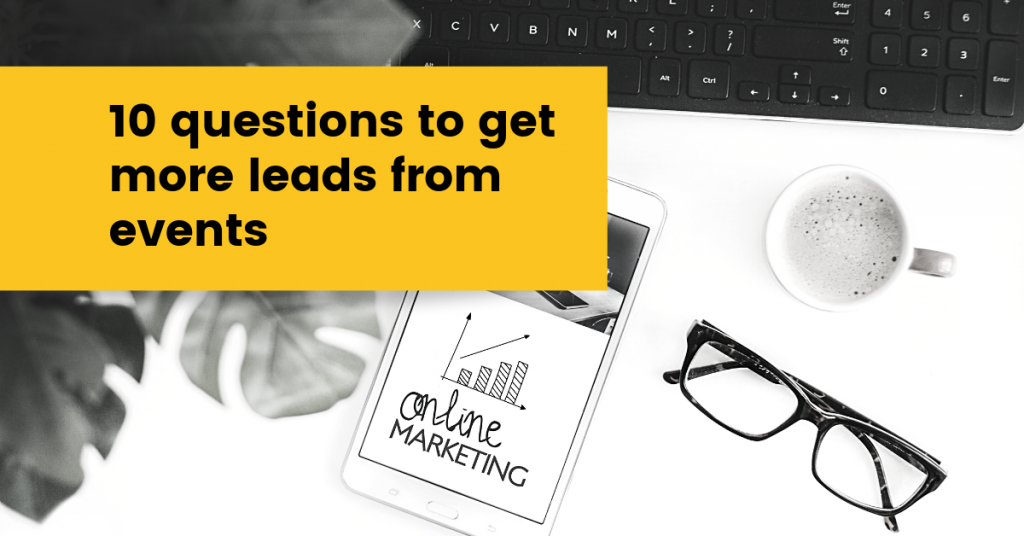The events world has changed a lot in the past year. Whilst in 2019, marketers were planning to increase their budgets for live events (according to Bizzabo), in 2020 we had to switch to virtual events. This has meant us, event planners, have had to adapt to new formats and ways of interactions, but still trying to reach our objectives of lead gen for the business.
With budget cuts in effect in several areas, the need to show ROI is greater than ever. Events are particularly important for B2B companies, which leverage them to generate and nurture leads, increase customer engagement, build their brands and showcase their services.
So, B2B marketers need to understand how events can be integrated in their overall marketing strategy. I mean, I love events, the thrill of planning it, the excitement of seeing people come through the door of the venue (or join on Zoom) and realising you’ve contributed to it. However, after 8 years of events, I don’t want to run events for the sake of running events, which is why I’ve put together a list of questions that will help you understand their role and help you get more leads and sales from them.
These questions are relevant for your companies own events. Whilst they can be applied to joining existing events as speakers or sponsors, the thought process there will generally be different.
Planning stage
This is where you research and decide on running an event. When you set your strategy and objectives for the entire event marketing campaign.
1. What are your marketing objectives?
Events are just one of the tools you have in your bag. Next to them, you have content marketing, PPC, SEO, ABM, social media, video (defined mostly as digital channels), TV, radio, outdoor billboards (traditional channels) and the list goes on. With the budget most often being limited, you will only be able to choose a few from the list, so you need to be able to justify your choice for events over everything else.
Events are one of the few channels that get you in front of your audience and provide a high level of interaction, even if this is virtual. If your services are complex, if you’re pioneers in your market, if the decision making process is complex for clients or you have more than 1 decision makers involved, it might be easier to present what you do in an event rather than a landing page.
Face to face interaction can also increase credibility, positioning you as a thought leader. Events, even virtual, will help put a face to the business and showcase aspects of the brand personality.
However, if your service is easy to explain in a few words and the decision making process isn’t as complex, you may be able to increase sales by using digital and traditional channels. When you ensure events are integrated in your marketing objectives, you get better results from them.

We’ve written before about what to consider before planning your own event.
2. Who is the target audience?
You’d think you don’t even have to ask about this. I mean, who doesn’t know their target audience now and why would you need to give it any extra thought when planning events. You’d be surprised at the amount of times I’ve discussed event marketing with companies that wanted to run events because they were cool, also being aware of what they can offer (see #1). However, if it’s not linked to your target audience, it won’t bring you the leads you want or help you reach your marketing objectives.
This step is an important one in deciding the topic and speakers for the events, so don’t skip it.
We’ve written before about defining your events’ audience.
3. What topics do they care about?
Now that you have defined your target audience, you need to understand what their pain points are. What challenges are they facing in their day to day role and how can you help overcome them? You should already know this from your marketing strategy, but now you need to apply this to the event.
Are your leads mostly interested in learning or networking? I once marketed a B2B telecoms conference, but the market was so small and so reliant on partnerships, that most people were interested in the expo area. Knowing this, the focus of the event and the marketing campaign was on networking, on who you will meet. We only had a few sessions, in the morning and afternoons were reserved for networking. But, if your audience is keen on learning, you need to understand the topics that are most relevant for them.
At the same time, consider the stage of the funnel in which your target for the event is in. If you’re creating an event for early stages (awareness), clients will mostly be interested in thought leadership and general topics, whereas if it’s for the later stages (conversion), the focus should be more on your services and products, how they can help and maybe even demo presentations.
You can define topics by reading industry publications and having research calls with industry leaders that match your target audience. As a marketer, you won’t always be involved in the content research process, which would mostly fall under production, but make sure you are aware of the key topics, since they will form the basis of your content marketing strategy and USPs definition. Offering the target market what they need will help you increase leads for events.
4. What are your competitors doing?
Every event has a cost of opportunity associated with it, which means that someone attending your event chooses it instead of being at work or being at another event. Virtual events have made it easier to join multiple events, but have also increased fatigue. So, you need to understand what your competitors are doing in terms of topics, structure, access and audience and aim to be different to them.
Research if they’re events are free to attend or have paid access. If it’s paid, how much are the tickets and how do they justify the rate? What type of audience do the attract? What type of events are they running? Taking all these into account, understand what niche isn’t covered and how you can do better than your competitors. Finding the gap in the events offering helps you stand out and attract new leads from your events.
5. What are my targets/KPIs?
Based on the marketing objectives and the structure of the event, it is time to define your KPIs. Whilst marketers usually track attendee numbers and qualified sales leads, you want to go beyond and set the metrics that will show the efficiency of the event in your marketing strategy.

Sure, having an event with a lot of attendees is great, but are they new leads? Is the sales process simplified because it started at an event? Can you upsell to existing clients visiting the event and did the event have an impact in your relationship? Are they even engaging with your company post event or where they a one off?
Understanding your targets in the planning stage will keep you on track when you start marketing the event, since you will always work towards your set benchmark and it will bring more leads from the event.
We’ve written previously about defining KPIs for events.
6. Who are the partners that will help amplify your message?

Most of the times, you have time to plan your events, so it won’t be important how fast you can go, but how far. It doesn’t matter if you get 20 attendees in 2 weeks if you could get 200 in 4 weeks, so make sure you have a plan of partners that can increase your reach, especially if you’re just launching an event.
Work with production or sales to compile a list of contacts that are interesting for your target audience, then see which of them would be speakers, sponsors, VIPs or influencers. Decide why the event would be relevant for them and how you can make them feel special. Make it easy for them to share your events and offer special discounts or incentives for the attendees they help bring. Engaging audiences outside your direct reach will be a great way to bring extra leads to events.
Execution stage
In the execution stage, you’ve already launched your event, so your marketing campaign is underway. The strategy has been set in the planning phase, but there are still some questions you need to answer before the event day.
7. Which channels are performing best?
Event marketing will include a mix of earned, owned and paid media, but there’s no winning formula that says how much of each you’ll use to get you to your target. So, you’ll have to constantly track performance for each channel to see which is performing best and what reallocation of resources you need to perform.
Based on the how much time you have left from your marketing campaign, you will be able to allocate more budget or resources to the channels that are delivering the most registrations or optimise the underperforming one. For example, if you see certain keywords performing better, you can allocate more PPC budget there. Optimising your channels will get you more leads for events for a set budget.
We’ve written previously about getting the channel mix right.
8. How are you tracking against target?
In an ideal world, everything would go according to plan and even better. But, since this doesn’t happen that often in real life, you need to have weekly/monthly targets to benchmark against. From my experience, around 50% of attendees register from 5 weeks out. So, if you have 15 attendees 5 weeks out, you will probably have 30 attendees at the event.
This is even shorter for virtual events, with 55% of webinar registrations come in the last week prior to the webinar (GotoMeeting), which gives you even less time to adapt your strategy based on results and puts an extra pressure on taking quick decisions.
Then, if you’re running a free event, around 40-50% registered attendees won’t attend on the day. For webinars, only about 1/3 of registrants join it (source). Does this match your plan? If not, go back to #7 and review your channels to make them perform better.
Even if you’re running an event for the same time, you should try to put together a booking pattern, with registrations piled around your Early Bird/discount periods (if you have any) and with the doubling point around 4-6 weeks out for live events and 1-2 weeks out for virtual events.
Post event stage
Events aren’t over when the last attendee or team member leaves the venue. The events that deliver the most leads have a solid follow up plan.
9. What worked well and less so?
As soon as the event finishes, it’s time to evaluate. Doesn’t matter if the event went extremely well or less so, you need to understand what brought the results. You can do this by analysing the data you have available (pre registration forms, event app, exhibition traffic, etc) or through feedback forms.
Decide what are the top 5-10 questions you want answered, so your feedback form isn’t so long it puts people off filling it in. If you have budget for it, incentivize completion with a prize. Give people a limited time to complete the survey, usually a few days after the event, whilst the information is fresh. The process of understanding what works best helps you get more leads for future events.
10. What follow up plan do you have?
The final step is having a follow up plan, based on the stage leads are in. Even if this step happens post event, it should be planned before launching the marketing campaign, as it will impact the data you collect about attendees and their user journey.
For example, if you have a company newsletter, you’d want to ask consent to add them to it as soon as they register for the event. If you plan on looping in your sales team after the event, you’d want to collect information about their plan to invest in solutions in the next 12-24 months and what type of solutions they’re looking for.
No matter how smart you are about following up, the worse thing you could do is to not do it. Don’t abandon those leads until your next event, engage them and nurture them so they become future clients or promoters for your business.
Once you have these 10 questions answered, you’re set to get more (and better) leads from your events – way to go you!
Get the next article in your inbox by signing up to our monthly newsletter:
About the author:

I am Raluca Apostol, Founder and Account Director at Event Marketing Stars and I have marketed over 60 events in the last 8 years, with attendee numbers ranging from 100 to 13,000, in small and big teams, in B2B and B2C, on 3 continents and helped deliver up to £4,000,000 in revenue.
I am passionate about events, lead generation and monetisation. If you want to reach out, you can find me on LinkedIn here.


